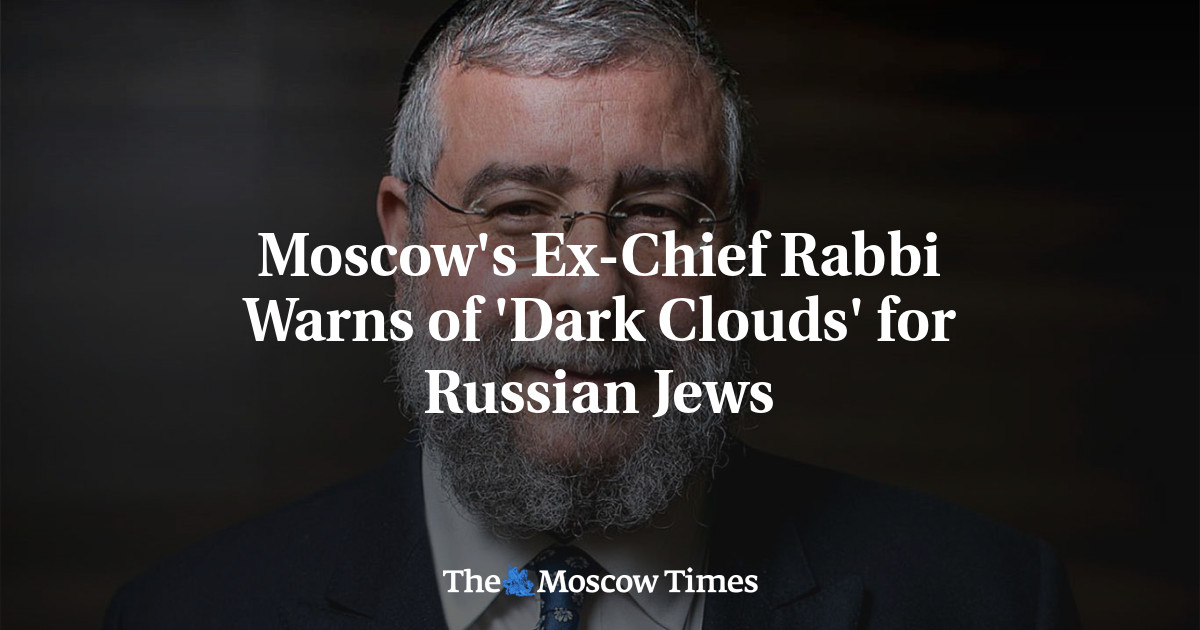
Moscow’s former chief rabbi now living in exile in Israel warned Thursday of “dark clouds on the horizon” for Russian Jews, as ties between the two countries deteriorate over the Ukraine war.
Pinchas Goldschmidt, who left Russia in March over opposition to the conflict, told reporters that “the Jewish community was pressured…to openly support the war. Our community did not support the war.”
“The situation is worrying” and there are “many dark clouds on the horizon” for Russian Jews, he said, adding that their “security and future…is dependent on Israel-Russia relations.”
Israel has been trying to walk a cautious line in order to maintain ties with Moscow — seen as crucial to preserving the Jewish state’s ability to carry out air strikes in neighboring Syria where Russian forces are present.
“Right now, it would be impossible for me to return,” the Swiss-born rabbi told an online briefing, adding: “If I would have [remained] the chief rabbi of Moscow, I wouldn’t be able to speak out openly without endangering my community.”
“I decided to stay in exile until the political situation will change.”
Following the February 24 invasion, then Israeli premier Naftali Bennett withheld criticism of Russian President Vladimir Putin’s actions and stressed the need for close ties with Moscow.
But Bennett’s successor Yair Lapid has condemned the Russian invasion.
Analysts say Lapid’s rhetoric has partly driven Moscow’s move to close the Russian branch of the Jewish Agency, which processes the immigration of Jews from the diaspora to Israel.
Lapid has warned Moscow that the closure would be a “serious event” threatening bilateral ties.
The Kremlin has said the move should not be “politicized,” calling it a purely legal matter.
According to the Jewish Agency, 16,000 Russian Jews have immigrated to Israel since the invasion began.
‘Fear of rising anti-Semitism’
Goldschmidt estimated that more than 30,000 other dual passport holders had left Russia for Israel since February 24.
Jews were leaving Russia in high numbers partly over fears of a new “Iron Curtain — that one day [it] will be impossible to leave,” the rabbi said, articulating what he described as a concern among Jews that Putin’s government could ban outbound travel.
He said Moscow’s moves against the Jewish Agency, among other incidents, had fostered “fear of rising anti-Semitism.”
Some experts have attributed Russia’s threats against the agency as part of an attempt to slow mass emigration.
“If Russia wants to stop the brain drain of its best scientists and creative class, the best way to do this is not by closing the Jewish Agency, but by stopping this war,” Goldschmidt said.
At a preliminary hearing on Thursday, a Moscow court set an August 19 trial date for the Russian justice ministry’s case against the agency, which has been accused of unspecified legal violations.
The Jewish Agency began working in Russia in 1989.
More than one million of Israel’s 9.4 million residents today have roots in the former Soviet Union.